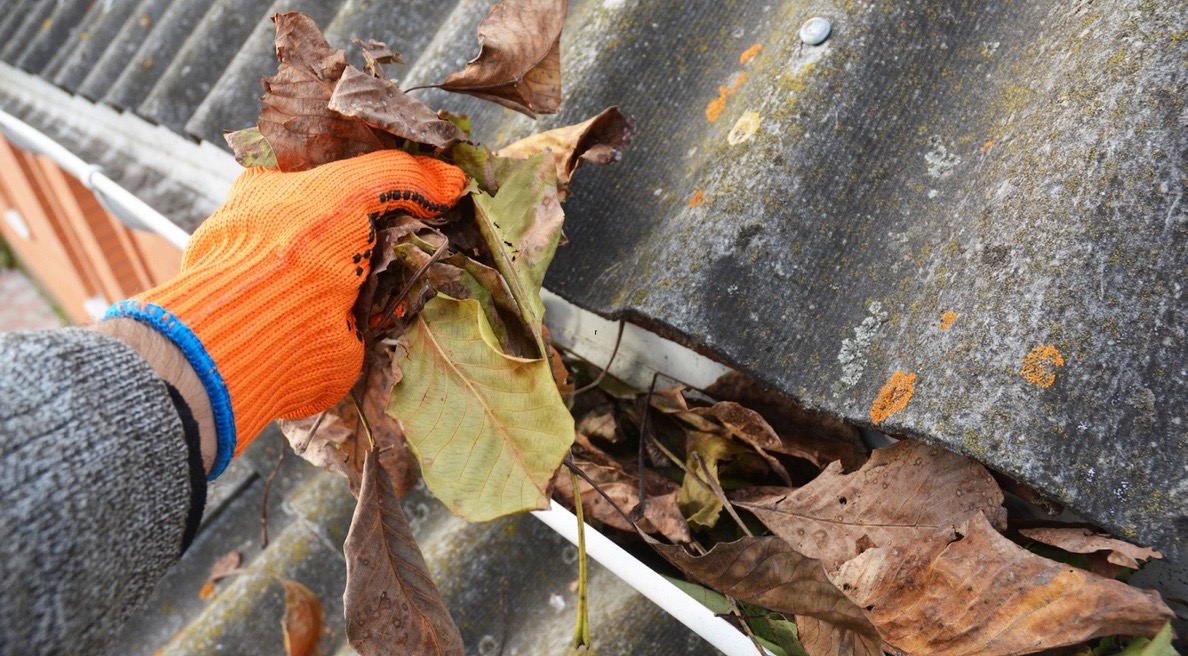Roofs are vital structures that protect your home from the elements and provide stability. Unfortunately—unlike windows and doors—roofs are easy to forget, meaning problems often go unnoticed.
Checking your roof regularly ensures you stay on top of problems—but how do you identify issues that require immediate repair?
Well, stick around because we’re about to reveal all in this post. You’ll learn ten warning signs that require immediate attention and what to do about them.
Let’s dive in.
Warning 1: Weather damage
When it comes to the notoriously unpredictable British weather, roofs handle a lot of wind, rain and snow. They’re built for this purpose, but that doesn’t mean your roof won’t feel the long-term impact of severe weather.
Water damage
Water damage can occur for numerous reasons, including problems with your windows or general dampness. However, tiny gaps in your roof can cause water to seep through, resulting in small patches.
Checking the roof and more obvious areas can help you identify problems.
Moss and mould
Moss and mould are also indicators of roof damage – as well as being unsightly. When they grow on the roof, it can cause the tiles to separate, putting your home at risk of water damage.
If you identify serious issues, it might be worth seeking a roof replacement.
Warning 2: Roof tiles that seem loose
It’s hard to notice loose roof tiles unless they’re falling off, and that’s why regular checks are so important. When you look at the roof, check to see whether there are any missing tiles. You can also step on them to evaluate their stability.
If just one or two tiles are loose, it’s an easy repair job. However, multiple missing or loose tiles often mean it’s time to get a new roof.
Warning 3: Sagging
Roof sagging is a severe problem that you should never ignore. Your roof should align with the ridge and be straight, but sagging or saddlebacks are warning signs that the roof isn’t stable.
If left untreated, structural problems can cause roof collapses, damaging your home and personal belongings. These issues typically occur in areas that see a lot of snow and ice due to the weight, but poor maintenance can also be a contributing factor.
Warning 4: Light shining through the roof
Turning the light off is an excellent way to identify issues with your roof because there should never be any lighting shining through it. Head to the attic at sunset and look for signs of sun coming through the ceiling.
If you notice any, that means there are cracks or small holes. In most cases, fixing a damaged roof is relatively easy with the right roofing accessories and some know-how. Large gaps might need professional support.
Warning 5: Flashing damage
Flashing protects roof vents and chimneys, preventing water from seeping between them and the tiles, making it a vital component of any roofing system. Unfortunately, even minor issues can cause severe damage to your roof and home.
When the flashing becomes loose, or the caulking material fails to perform, the entire roof can be at risk.
Warning 6: Gutter problems
Gutters are essential for any home, diverting water from the roof and prolonging its lifespan. Debris in guttering systems is normal, but you should check them regularly for asphalt, shingles and other roof components.
General wear and tear or weather can cause the shingles to crack, and this material will usually accumulate in the gutters. However, check the ground, too, as serious cracking might cause further breakages.
Warning 7: Roofing underlay rotting
Roof tiles alone aren’t invincible, and they can only perform their function with the help of underlay materials. Monitoring the underlay is an extra task, but remember to check it regularly and replace it if you notice any wear.
Even a minor tear can cause serious issues, but they often worsen over time, leading to large leaks that penetrate your roof and the home itself.
Warning 8: Material ageing
Every roof is meant to last for years, but materials can only do so much. Most roofing systems in the UK use time-tested shingles and tiles, which are highly durable materials that can handle extreme weather.
However, these materials will gradually degrade over time, and replacements are necessary. Specialists recommend roofs require regular checks every 15 years.
Warning 9: Falling mortar
Mortar bonds masonry elements and seal joints, ensuring stability and durability while providing additional protection against water. Unfortunately, despite its many benefits, mortar can become less effective with age and lose its properties.
Extreme weather can cause the mortar to fall off, resulting in leaks and safety hazards. Checking verges and ridges lets you notice issues immediately and seek professional help.
You should always replace mortar rather than repair it. The good news is that a replacement will protect your roof for years.
Warning 10: Attic leaks
Most people don’t spend a lot of time in their attics, which makes it challenging to notice leaks when they occur. The signs of a roof leaking into your attic include hearing water dripping and seeing dark circles and surfaces that seem bubbling.
Regularly assessing the attic prevents leaks from worsening and ensures you can identify the root cause before it’s too late.
Things to remember:
- Roofs aren’t invincible, and age often makes them more susceptible to problems.
- Materials can gradually degrade, but paying for repairs can often prevent entire roof replacements.
- Performing regular checks is the best way to identify any issues. You don’t need to do them constantly, but every so often is more than enough.
- Never leave leaks to get worse. Even a couple of drops of water can turn into serious water damage.
Final thoughts
A little preventative maintenance and alertness now can make a massive difference to the longevity of your roof. Sometimes, repairs are the best way to prevent the significant expense of replacing the roof, and E-Roofing is the go-to place for roofing supplies.
Our website has materials from the UK’s most reputable suppliers and a dedicated team always on hand to offer support. Please feel free to contact us if you need advice.








